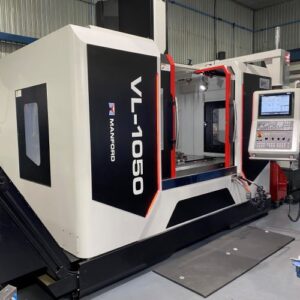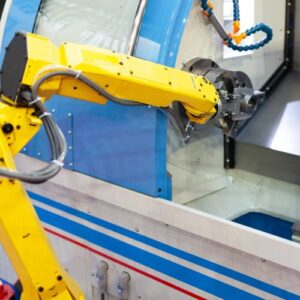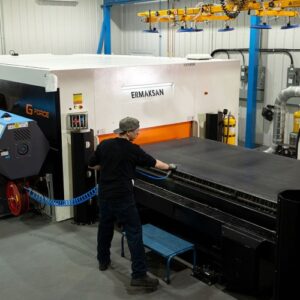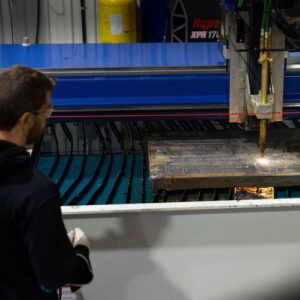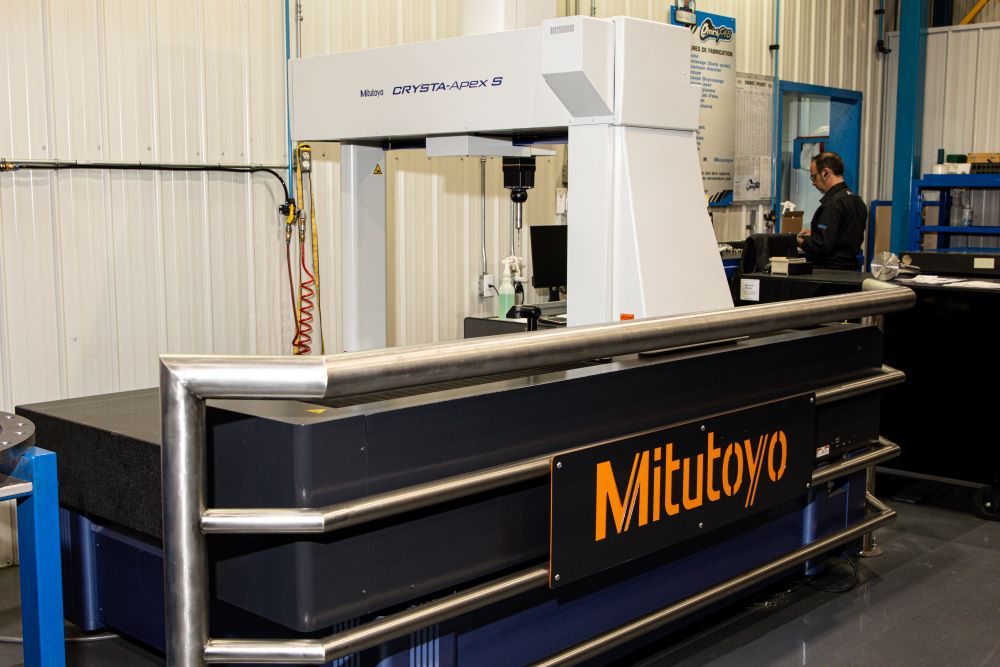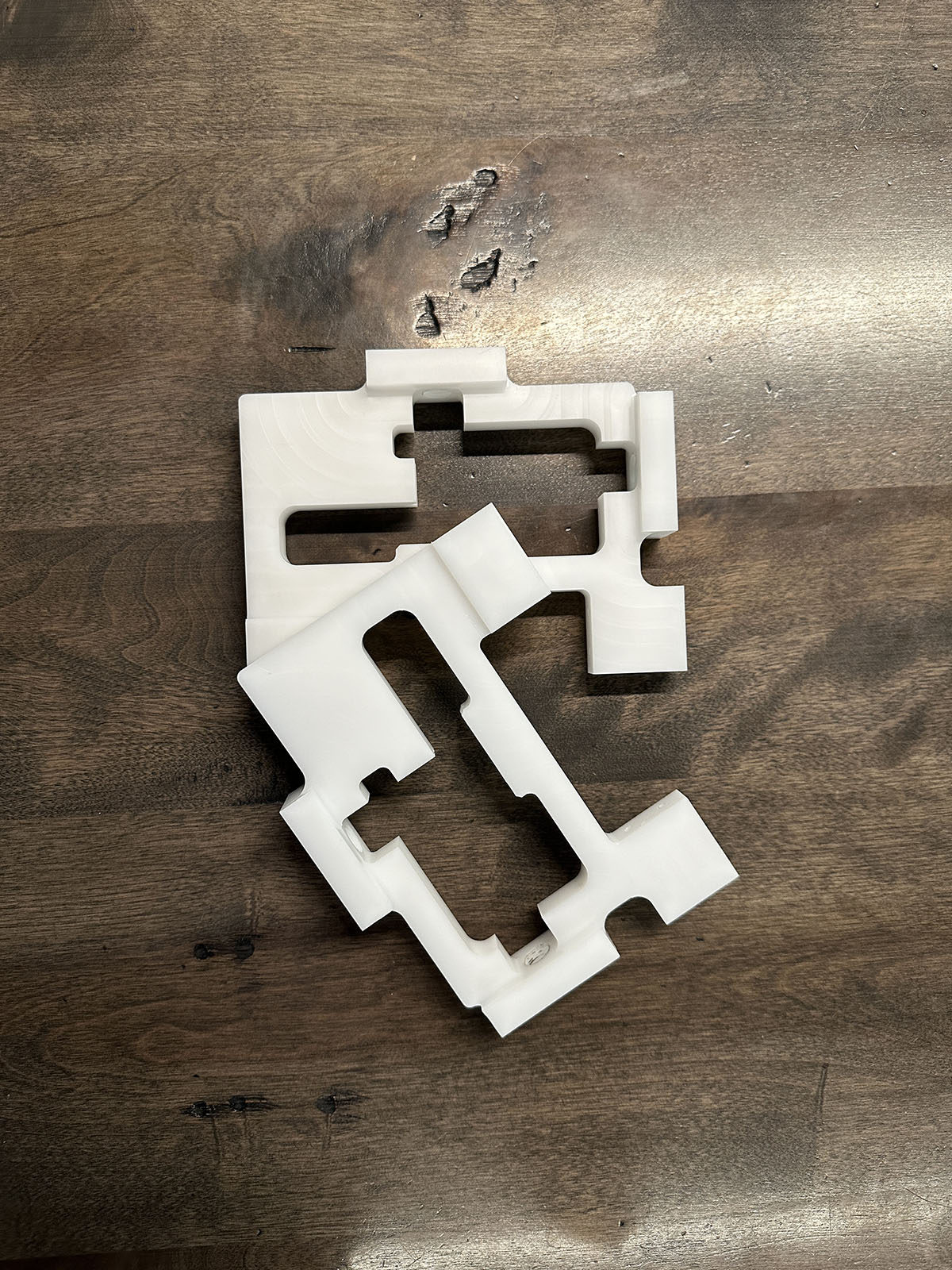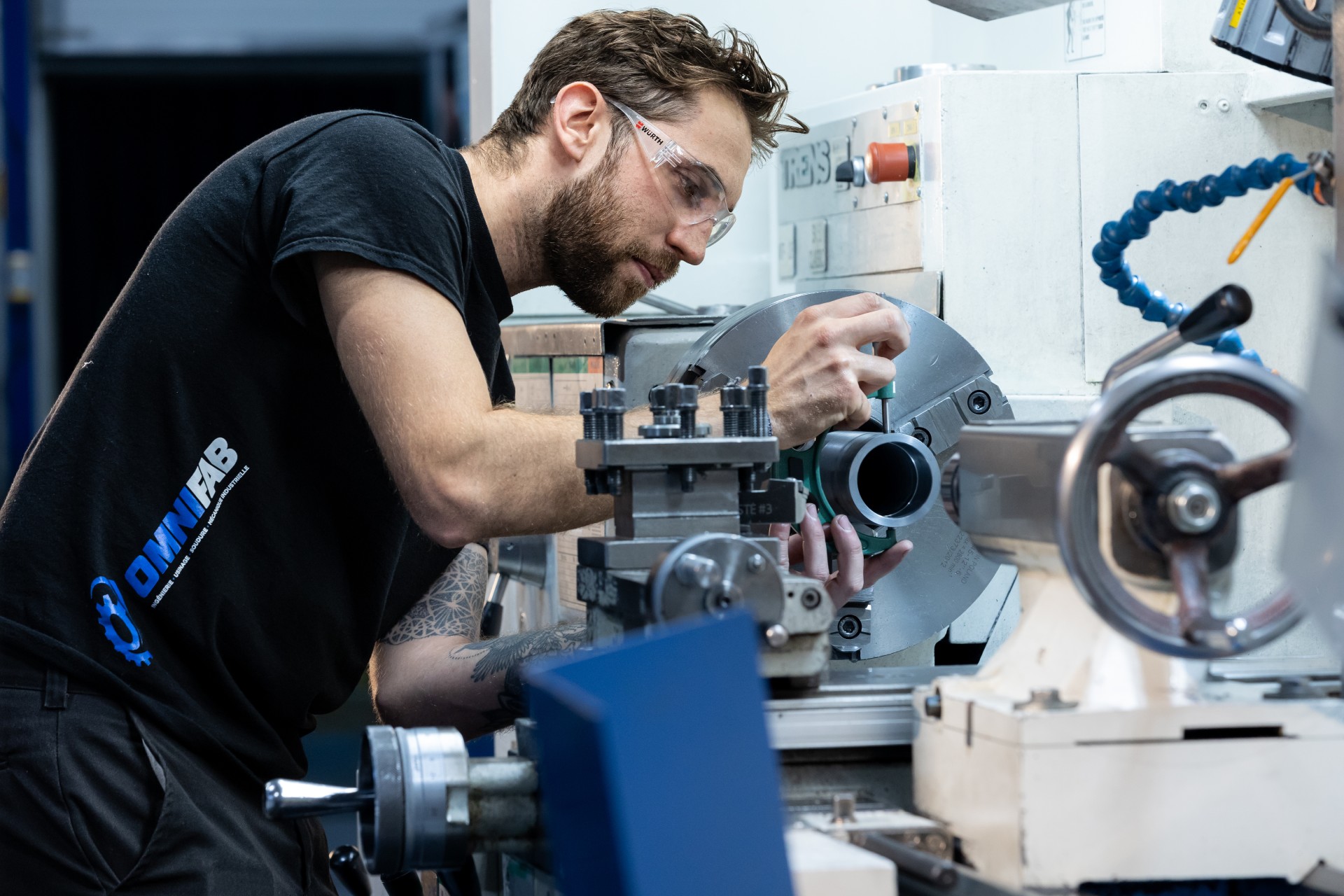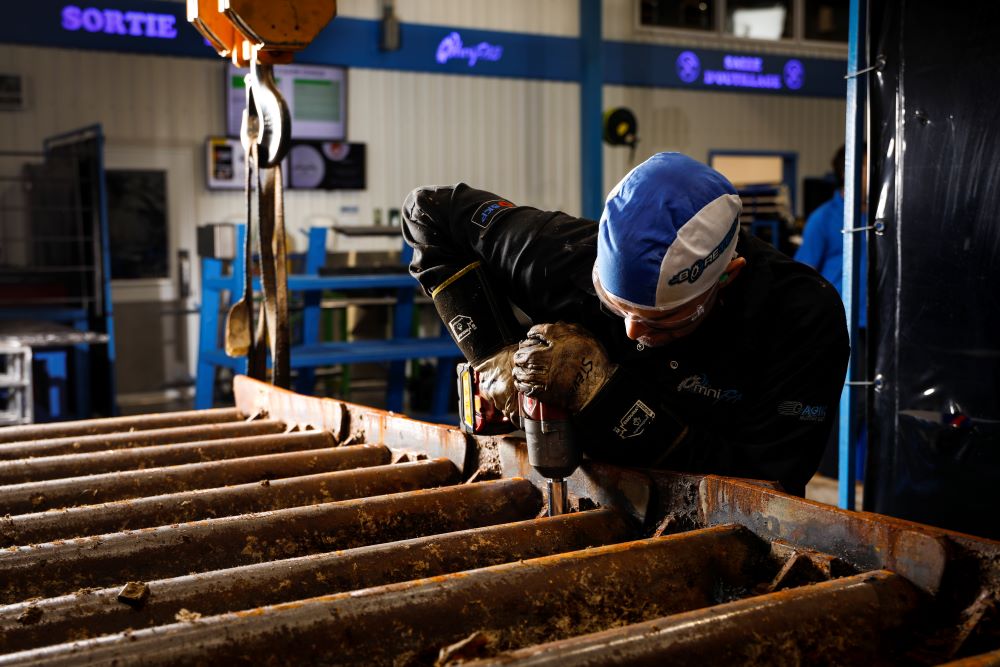If you’re interested in mechanical manufacturing and machining, you may have heard of CNC machining without really knowing what it means.
However, this machining technique has become virtually indispensable for machine shops. That’s one of the reasons why our team of machinists have written this text, in which you will find a wealth of relevant information about CNC machining.
Definition of CNC Machining
CNC (Computer Numerical Control) machining is an automated mechanical manufacturing process used to produce precise, complex parts from raw materials. It involves the use of computer-controlled machine tools to execute programmed instructions to cut, shape and machine parts of all types to precise specifications.
In a CNC machining system, the instructions are usually created using computer-aided design (CAD) and computer-aided manufacturing (CAM) software. These instructions, also known as CNC programs, define the movements and actions the machine tool must perform to turn raw material into a finished part with exact dimensions.
CNC machining is therefore an alternative to traditional manual machining, which requires operators to initiate and guide the control of machining tools using levers, buttons and wheels.
It is widely used in many industries, including automotive, aerospace, electronics, tooling, medical and custom manufacturing.
CNC machine tools
Here are some of the main types of CNC machine tools used in machine shops:
CNC machining centre (sometimes called CNC milling machine)
A CNC machining centre uses rotating cutters to progressively remove chips of material to shape a part to the required specifications. The cutter is attached to a spindle that rotates at high speed and is moved in different directions (usually the X, Y and Z axes) to machine the material with precision.
This machine can perform several subtractive machining operations such as milling, drilling, tapping and threading.
CNC Lathe
The CNC lathe is used for machining cylindrical parts, especially for turning and drilling. This machine can be used to produce symmetrical parts such as shafts, axles and wheels.
CNC Laser Cutting machine
This machine uses a laser beam to cut and engrave various materials such as steel, stainless steel and aluminum. Laser cutting is an ideal technique for shaping large-format sheets into the desired shape.
CNC Plasma Cutting Machine
This machine uses a jet of ionized gas at temperatures approaching 20,000°C to cut conductive sheet metal such as steel, aluminum and stainless steel. Plasma cutting is often used to cut thick sheets.
CNC Bending Machine
This machine bends sheet metal using a die and press. CNC metal bending is commonly used in the sheet metal industry to make box and frame parts.
Let us take care of your CNC machining needs
Software Used for CNC Machining
As mentioned above, CNC machine tools are most often used in combination with computer-aided design (CAD) and computer-aided manufacturing (CAM) software.
CAD software
CAD software is widely used in mechanical engineering to facilitate the design process. They offer a range of features to help designers and engineers perform their tasks efficiently:
- 2D/3D modeling;
- Editing and modification;
- Assembly;
- Analysis and simulation;
- Documentation and drafting;
- Data import and export.
CAM Software
CAM software is software used to create machining programs that guide computer numerically controlled (CNC) machine tools through the part manufacturing process. CAM software is often used in conjunction with CAD software to facilitate the transition from design model to actual production.
CAM software provides a number of features to streamline and automate manufacturing processes, including:
- Toolpath programming ;
- Tool selection;
- Machining simulation;
- Machining process optimization;
- G-code
Materials Compatible with CNC Machining
CNC machining can produce parts from a wide variety of materials. The material to be prioritized must be selected based on its properties, as well as the characteristics and intended use of the part to be manufactured.
Metals
Several metals are used in CNC machining, not least because they offer an excellent balance between strength, hardness and thermal resistance. Here are a few examples:
- Aluminum;
- Steel;
- Stainless Steel;
- Steel alloys;
- Brass.
Plastics
An increasing number of machine shops now offer machining services for plastic components of various types:
- ABS (acrylonitrile butadiene styrene) ;
- Nylon;
- POM (polyoxymethylene);
- PTFE (Teflon);
- HDPE (high density polyethylene).
Plastics are often selected for their chemical resistance and electrical insulation properties.
Composite materials
As the name suggests, composites are made up of different materials that combine to create a raw material with specific properties. Here are a few that lend themselves well to CNC machining:
- Fiber-reinforced plastic ;
- Fiberglass (combined with resins);
- Carbon fiber (combined with resins);
- Graphite fiber (combined with resins).
Benefits of CNC Machining
CNC machining offers several benefits over conventional machining methods:
High precision
CNC machine tools are capable of machining parts to a very high level of precision. Computer-controlled movements allow tight tolerances to be achieved, ensuring consistent quality of the parts produced.
Higher production volume
CNC machines can run continuously, 24 hours a day, with minimal supervision. They can also automate machining processes, reducing the time it takes to produce parts. In short, CNC machines increase the overall productivity of the shops that use them.
Versatile
CNC machines can perform a wide variety of machining operations. As a result, they can produce complex parts with a single machine.
Advanced programming capabilities
CNC machines enable the rapid creation of complex machining programs. What’s more, design changes can be easily incorporated into programs without requiring physical changes to the machine.
Reduced human error
Precise programming instructions and automated movements ensure high accuracy and reduce the risk of errors due to human fatigue or inattention.
Maneuver repeatability
CNC machine tools can precisely reproduce the same machining operations to produce identical parts. This is especially important in mass production, where a high degree of uniformity is required.
Maximization of Raw Materials
CNC machining optimizes material usage by minimizing waste and scrap. Precise movements and optimized cutting strategies ensure high material yields.
Compatibility with 3D scanning
The combination of 3D scanning and CNC machining enables rapid production of customized parts or small product runs.
Looking for a CNC Machining Company?
In conclusion, CNC machining has virtually revolutionized the world of machining. Its benefits are numerous, and it allows for the creation of an infinite number of mechanical components with complex shapes and dimensions accurate to the micrometer.
If you’re looking for a company to provide fast, reliable machining services, think Omnifab. We promise results that will exceed your expectations, and we won’t hesitate to use CNC machining to ensure your complete satisfaction.
Contact us today to place your order!

